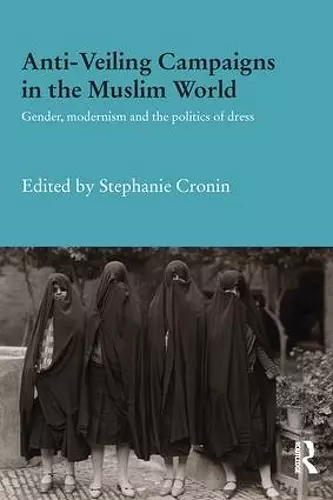Anti-Veiling Campaigns in the Muslim World
Gender, Modernism and the Politics of Dress
Format:Paperback
Publisher:Taylor & Francis Ltd
Published:24th Apr '16
Currently unavailable, and unfortunately no date known when it will be back
This paperback is available in another edition too:
- Hardback£155.00(9780415711388)

In recent years bitter controversies have erupted across Europe and the Middle East about women’s veiling, and especially their wearing of the face-veil or niqab. Yet the deeper issues contained within these controversies – secularism versus religious belief, individual freedom versus social or family coercion, identity versus integration – are not new but are strikingly prefigured by earlier conflicts. This book examines the state-sponsored anti-veiling campaigns which swept across wide swathes of the Muslim world in the interwar period, especially in Turkey and the Balkans, Iran, Afghanistan and the Soviet republics of the Caucasus and Central Asia. It shows how veiling was officially discouraged and ridiculed as backward and, although it was rarely banned, veiling was politicized and turned into a rallying-point for a wider opposition. Asking a number of questions about this earlier anti-veiling discourse and the policies flowing from it, and the reactions which it provoked, the book illuminates and contextualizes contemporary debates about gender, Islam and modernism.
"The book’s most obvious common theme is the correspondence between the need to carve put a national character and the female body politic. Anti-veiling in these countries was an opposition to Arabisation; the veild came to be seen as a cultural import that was both alien and foreign in the modernising State. By comparison, even at the height of secular nationalism in the Arab world, Stephanie Cronin notes that there were no official attempts to change "sartorial practices in any systematic way". The second theme that is pertinent throughout the book is the way in which suppositions about female dress can be contradictory. Face veils, cast as backward and submissive, wee in fact widely accepted and practised by elites in these countries prior to forceful unveiling reforms enacted during the 20th century".
R.Khan ,The Royal Society of Asian Affairs
ISBN: 9781138687202
Dimensions: unknown
Weight: 408g
288 pages